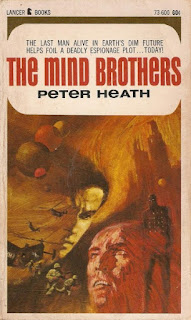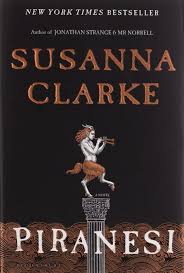Hugo Recommendations, 2022
Hugo nominations for 2022, to be awarded at Chicon later this year, are due by March 15, which is in only a week, of course. These recommendations are incomplete, in a sense, as my reading has so far been confined to only a few novels, and to the short fiction that I reviewed for Locus. There unquestionalby worthy stories that I have so far missed.
Novel
The Unraveling, by Benjamin Rosenbaum
Klara and the Sun, by Kazuo Ishiguro
I really loved both these books, in somewhat different ways. The Unraveling is far future SF, with really intriguing speculation on alternate economies, different forms of human bodies, different gender definitions, and societal change. Klara and the Sun is near future SF, with frankly rather thinnish speculation -- the two SFnal ideas, Artificial Friends (androids who serve as companions for children) and genetic "lifting" for children born to families who can afford it, are both very familiar and not really fully thought through (as in, in what other ways would society change if such things could be?), but the novel is much more interested in asking what does it mean to be human, and it is very good at exploring that.
I am going to read Far From the Light of Heaven, by Tade Thompson, next -- and I will say it looks very promising!
Novella
John Kessel, "The Dark Ride", (F&SF, 1-2/20)
Ray Nayler, "A Rocket for Demetrios", (Asimov's, 1-2/20)
Kessel's "The Dark Ride" is a neat and, yes, dark story of the last days of the assassin of President McKinley, and of his remarkable trip to the Moon, and the revolution he gets involved with up there. Nayler's story is part of his alternate history in which the US recovered some amazing tech from a crashed alien ship -- it has its share of action and intrigue, and plenty of cool Science Fictional aspects, but it is mostly deeply an examination of morality and loyalty as it applies to nations.
Novelette
Fran Wilde, "Unseelie Brothers, Ltd.", (Uncanny, 5-6/21)
David Moles, "The Metric", (Asimov’s, 5-6/21)
Gregory Feeley, "The Children of the Wind", (Asimov's, 7-8/21)
Nalo Hopkinson, "Broad Dutty Water: A Sunken Story", (F&SF, 11-12/21)
Fran Wilde's story is a lovely fantasy about an aspiring dress designer who gets a chance to work for the title company, making a dress for her best friend -- cool enough (and the imagined dresses are neat) -- but also we get -- labor issues! Moles' story is very very very far future SF, about two posthuman twins on different sides of the question of how to respond to a threat to the very universe. Feeley's is one of his long series (soon to be a novel, I trust) about an attempt to colonize Neptune (or its area) -- this one tells of a crucial riot/revolution arising from the rift between the Earthborn passengers and their children. Hopkinson's piece is set in the Caribbean, after climate change has radically altered life for everyone, but it's actually rather optimistic (as I wrote: "there are aspects here that seem almost utopian, from the technologically mediated green growing practices to printed ultralight planes that fly themselves to brain implants that can give you night vision (and much more.)") It's also a pretty cool adventure story.
Short Story
Cat Rambo, "Crazy Beautiful", (F&SF, 3-4/21)
Sarah Pinsker, "Where Oaken Hearts Do Gather", (Uncanny, 3-4/21)
P. Djèlí Clark, "If the Martians Have Magic", (Uncanny, 9-10/21)
José Pablo Iriarte, "Proof by Induction", (Uncanny, 5-6/21)
Gregory Feeley, "Striding the Blast", (Asimov's, 11-12/21)
Rambo's piece is both about art, and why art might be important to an AI, and why an AI might see art differently than a human. And it’s both scary and ... crazy beautiful. Pinsker's is a beautiful and spooky story of an investigation into the origins of a certain folk song. Clark's is a lovely piece set decades after the Martian invasion in The War of the Worlds was repulsed by -- magic, and about its heroine's belief that Martians can do magic also. Iriarte's is about math, or rather, mathematicians -- a son using tech that can "revive" (in simulation) his dead father, with the hope that he can continue a collaboration on a proposed proof. (So, it's really about fathers and sons!) Feeley's story is fascinating posthuman hard SF set on Mercury, echoing mythology, highlighting the terrible nature of that culture and hoping for possible change.
I had other outstanding candidates for Best Short Story, and I 'll list them here:
Karen Russell, "The Ghost Birds", (The New Yorker, 10/11/21)
Sofia Samatar, "Three Tales from the Blue Library", (Conjunctions:76)
Alexandra Seidel, "January House", (Not One of Us, 1/21)
Best Fan Writer
I mention this category as well, in part because I am eligible in it, and I would hope people will consider my writing ... But also to highlight some excellent fan writers I've been following. These include John Boston, reviewing Amazing Science Fiction of 55 years ago for Galactic Journey. (There are other fine writers for the Journey as well -- notably proprietor Gideon Marcus, and Cora Buhlert, already a two-time Hugo nominee, who writes about books from that time.) Also John O'Neill, editor/publisher of Black Gate (for which I write), who writes all sorts of cool stuff about books (vintage and new.) And there are two blogs I've been reading: Science Fiction Ruminations, by Joachim Boaz, in which he looks at short ficton and novels from before 1985, including extended series about subjects like astronauts, generation ships, and such authors as Carol Emshwiller. The other blog is the Hugo Book Club Blog, mostly written by Olav Rokne and Amanda Wakaruk -- so I would suppose a nomination ought to be for them as a team.
Astounding Award for Best New Writer
I also looked through some lists of writers eligible for the Astounding Award for Best New Writer and these are the five whose stories have most impressed me over the past couple years:
Filip Hajdar Drnovsek Zorko
Nadia Afifi
Charles Q. Choi
Shaoni C. White
John Possidente







